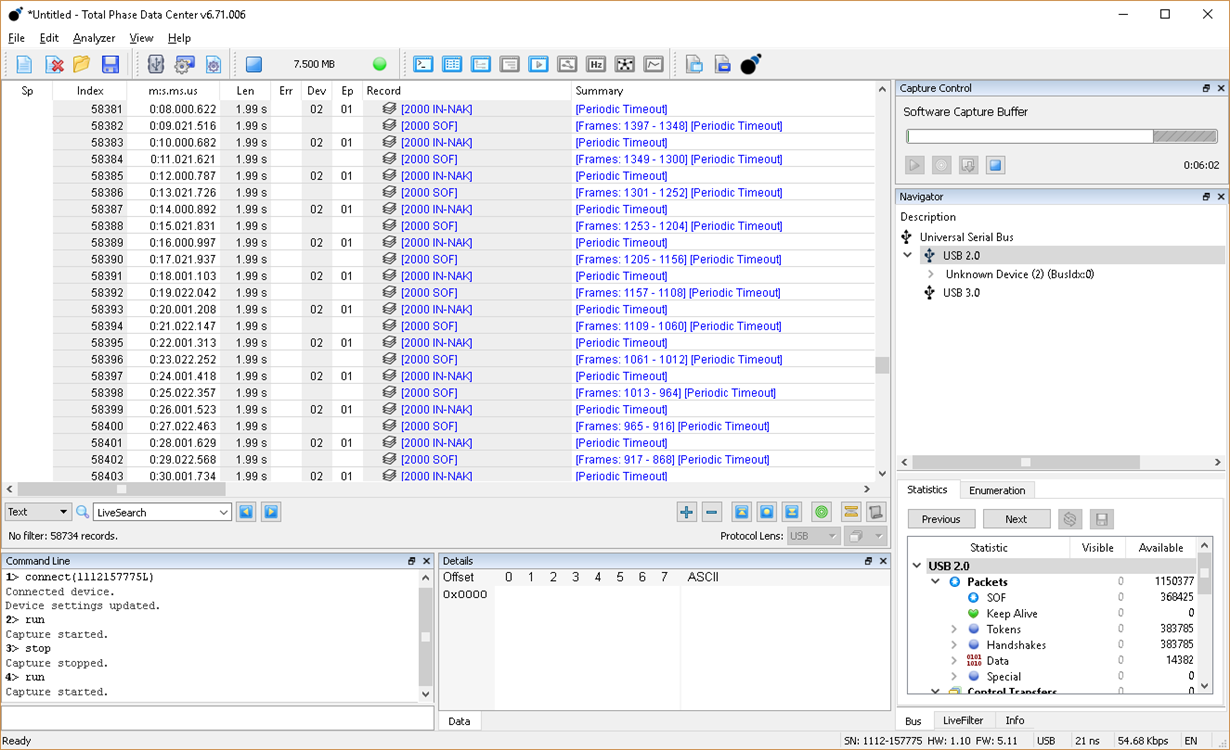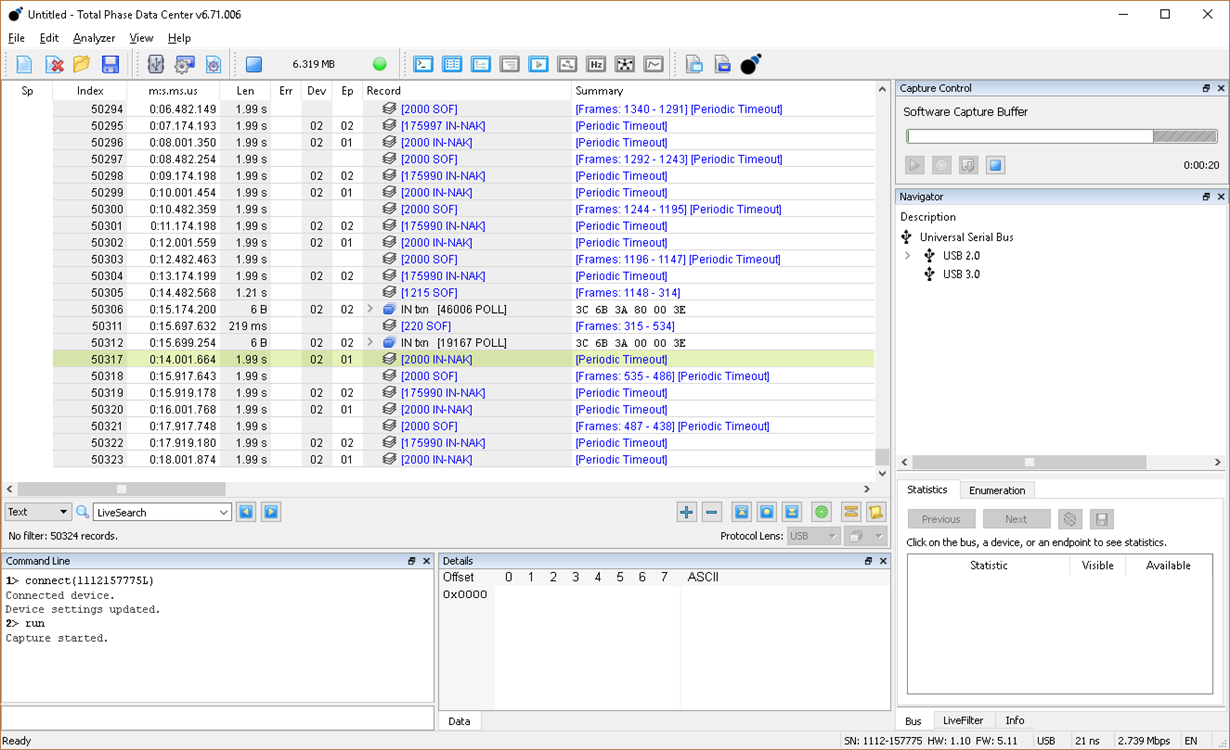Hello
I'm using the CDC device example on a Tiva TM4C1290 and my two way communication seems to stop working after a while. I'm trying to figure out of this is a host or device problem. The device (in this case the Tiva) is using the CDC example code as the base link and when I write to the USB buffer to do the transmit, everything looks fine (all the buffers show up as empty and ready to go) until it gets into the stack and then it stops. Here is the code as I see it going into the stack:
(create 6 byte buffer to be transmitted)
USBBufferWrite(&g_sTxBufferA, ptr2str, len);
(inside USBBufferWrite) > ui32Length is >0 (6 in my case) >
ScheduleNextTransmission((tUSBBuffer *)psBuffer);
In ScheduleNextTransmission; ui32Packet on line 69 of usbbuffer.c returns a 0. I'm not sure how to troubleshoot this or if this is a problem with my host blocking the inputs or what. Is there any guidance? I have the USB lines tapped and I can see that the device still receives data fine from the device but whenever I try to enqueue these writes to the device's buffer no traffic seems to happen on the USB lines.
Thanks
Chris



